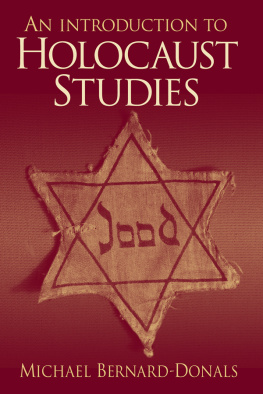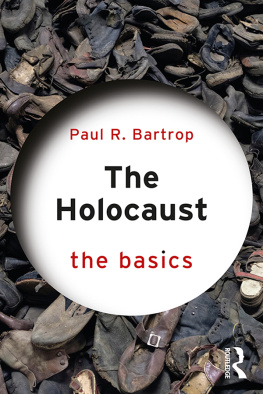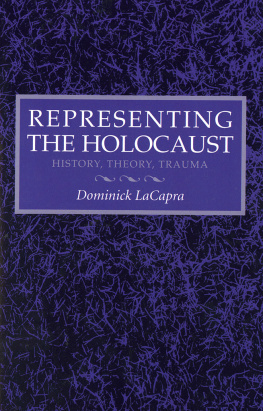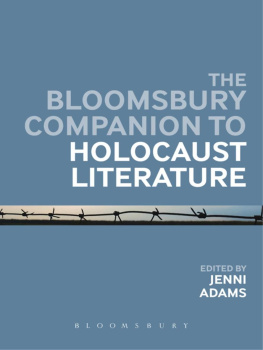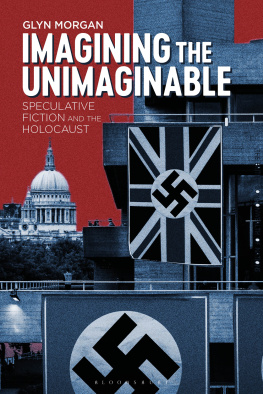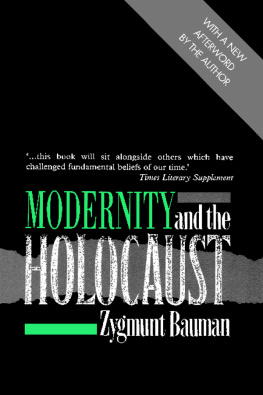First published 2006 by Pearson Education, Inc.
Published 2016 by Routledge
2 Park Square, Milton Park, Abingdon, Oxon OX14 4RN
711 Third Avenue, New York, NY 10017, USA
Routledge is an imprint of the Taylor & Francis Group, an informa business
Copyright 2006 Taylor & Francis.
All rights reserved. No part of this book may be reprinted or reproduced or utilized in any form or by any electronic, mechanical, or other means, now known or hereafter invented, including photocopying and recording, or in any information storage or retrieval system, without permission in writing from the publishers.
Notice:
Product or corporate names may be trademarks or registered trademarks, and are used only for identification and explanation without intent to infringe.
Cover Design: Bruce Kenselaar
Credits and acknowledgments borrowed from other sources and reproduced, with permission, in this textbook appear on appropriate page within text.
ISBN-13: 978-0-13-183917-5 (pbk)
Library of Congress Cataloging-in-Publication Data
Bernard-Donals, Michael F.
An introduction to Holocaust studies / Michael Bernard-Donals.
p. cm.
Includes bibliographical references and index.
ISBN-13: 978-0-13-183917-5
1. Holocaust, Jewish (19391945)Historiography. 2. Holocaust,
Jewish (19391945), in literature. 3. Memory. I. Title.
D804.348.B48 2005
940.5318072dc22
2005014361
The Holocaust is a watershed event. It changed how we think of war, about humanity and inhumanity, about justice, and about history. For some writers and historians, the Holocaust defines the twentieth century. Because of the Nazi policy of Final Solutionwhose aim was to eliminate the Jewish population of Europe and, eventually, the worldhistorians and social scientists, theologians and ethicists, writers and artists, have all had to reconsider not only a crucial aspect of their subject matter but also their methods of study and of representation. The Holocaust was an event, like any other event, that has had effects upon the generations that came after. But because of its magnitude, and because it pushed the limits of what we consider normal, it has also pushed the limits of the disciplines and methods through which we study events.
It is for this reason that Holocaust studies has evolved as a field of study. In part because it pushes the limits of so many conventions, and in part because it seems to affect just about every traditional subject area and genre of representation, scholars and writers have begun to think of the Holocaust as deserving attention not just from one or another disciplinary lenshistorical, or anthropological, or ethical, or artisticbut from a multidisciplinary perspective. That multidisciplinary perspective takes as a given that its simply impossible to pin the event down once and for all. It also takes as a given that a scholar or artist loses sight of the effects of the event if she limits herself to questions of what happened. This is because the question of what happened is horrifying enough; but answering that question doesnt tell us anything about the effects of what happened. Those effects arent just how the event made an impression on the people whose lives were directly affected by the Holocaust. Those effects are also visible on those who werent there and who were born generations later. We cant read a story about a disaster, or see film footage of a war or an atrocity, we cant look at a photograph of a burned synagogue in Argentina or the war in Palestine without seeing a shadow of the Holocaust. And we cant study the history of the war in Iraq, or think about the ethics of the Human Genome Project, without also realizing that the questions we might ask about the Iraq war or about genetic classification are shaped by studies of the limits of warfare and of eugenics; they are shaped by the Holocaust as well.
This book isnt an introduction to the Holocaust; its an introduction to Holocaust studies. Its not a book about what happened; there are many, many very good books that tell the story of the Holocaust. Instead, this is an introduction to the way the Holocaust has been studied, particularly in the last fifteen to twenty years. Or, to put it more specifically still, this book provides one way to see how the Holocaust has been studied over the last fifteen to twenty years. It includes a consideration of how questions about the history of the Holocaust have changed; it includes an examination of the words of survivors and perpetrators and how their recollections of what happened have been considered differently by different writers and thinkers; and it includes questions about whether some depictions of the Holocaustartistic and academicare better, more ethically acceptable, and more accurate, than others. It also takes seriously the question of why we ought to study the Holocaust (from any disciplinary perspective) at all: what does the Holocaust teach us, what does it teach us about, and what are the implications of teaching and learning about something as horrifying as the near-total destruction of a people?
Because the Holocaust has become the focus of so much writing, scholarship, and art over the last twenty years, no book on the subject could be exhaustive, this one included. No book on the Holocaust, let alone Holocaust studies, could take account of the full range of work done on the subject since the conclusion of World War II. Instead, this bookas the title impliesprovides an overview of the trends that Holocaust scholars, writers, and artists have followed, and suggests some avenues for questioning some of the assumptions from which they work. It doesnt take into account all the writers and scholars who have taken the Holocaust as their subject; it doesnt introduce all the diarists and memoirists, novelists and poets whove turned their attention to the events; and it doesnt turn to all the filmmakers, architects, and visual artists who have thought long and hard about how the Holocaust has changed the nature of film, or architecture, or painting. The book does, however, provide representative examples from all of these fields (among others). And the book takes those examples as points of departure: readers can ask not just the questions the artists and writers have asked in their workabout ethics, genocide, history, humanitybut can also ask questions of those thinkers, writers, and artists. As the title of the book also suggests, this is not the introduction but an introduction; its not only an overview of the field. It asks and prompts questions about the field, about its object of study, and about the appropriateness of some of the assumptions it makesabout art, about the academic disciplines, about ethics, and about genocide.
This book falls into three main sections. After two brief chapters outlining the events of the Holocaust and of the years immediately following in which Holocaust studies emerged, the first section involves the question of history: what history is, how it defines its object, what challenges the Holocaust offers to history and historiography, and what we can and cant learn from investigating the Holocaust through a primarily historical lens. One way to think about history is as a tool for making clear what happened and when it happened; another is to think about it as a way of weaving together events into coherent and understandable stories. History is both what happened and the story of what happened. In the case of the Holocaust, because what happened seems so counterintuitive and horrifying, what do historians do when confronted with the need to say what happened in a language that is both intuitive and understandable? The problem historians face is the same problem any thinker or scholar faces: how do you handle an object of knowledge that seems to defy any of the categories youd place it in so we can make sense of it?

